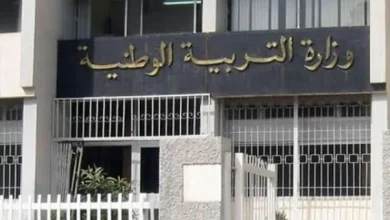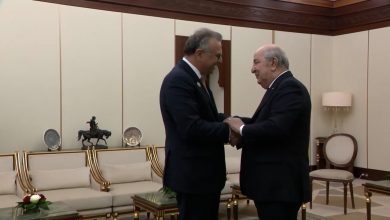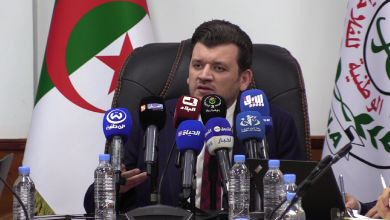DAR ES SALAAM – The Tanzanian government has vehemently rejected a report published by Amnesty International that accuses authorities of employing repressive laws to stifle opposition and activists in the lead-up to the general elections scheduled for October 29, 2025. Government officials in Dar es Salaam have dismissed the report as “lacking objectivity” and distorting the image of the country. Amnesty International, however, stands by its findings, asserting that existing laws are being used to silence dissent and undermine fundamental freedoms.
In an official statement released on October 24, government spokesperson Gerson Msigwa affirmed Tanzania’s commitment to “constructive dialogue with international partners.” However, he characterized Amnesty International’s report as containing “general and unsubstantiated allegations” that the government was not given an opportunity to address before publication. The statement further emphasized that Tanzania is “firmly committed to protecting human rights” in accordance with its amended 1977 constitution and the international and regional agreements it has ratified, including the International Covenant on Civil and Political Rights and the African Charter on Human and Peoples’ Rights.
Amnesty International’s report, titled “Wave of Repression Sweeping Tanzania Ahead of 2025 Elections,” alleges that Tanzanian authorities have weaponized laws such as the Media Services Act, the Cybercrimes Act, and the Political Parties Act to restrict freedom of expression, assembly, and political organization. Tigere Chagutah, Amnesty International’s Regional Director for East and Southern Africa, stated that these laws are “vague and broadly worded, and inconsistent with international human rights standards.” He further asserted that the violations target freedom of the media, freedom of movement, and the right to peaceful assembly.
The political landscape in Tanzania has been marked by a series of actions that the opposition and human rights organizations have deemed as a crackdown on political activity. A key example is the exclusion of opposition leader Luhaga Mpina from running in the presidential election. This move has been widely criticized as a deliberate attempt to silence dissenting voices. Furthermore, the chairman of the opposition Chadema party, Tundu Lissu, is facing trial on charges of treason, sparking widespread controversy over the use of the judiciary as a tool to restrict political activity.
The situation is further complicated by the arrest of Chadema’s Deputy Chairman, John Heche, after he was prevented from attending the funeral of Kenyan opposition leader Raila Odinga. Observers have interpreted this incident as further evidence of the tightening security grip on the opposition.
Responding to the accusations, the Tanzanian government has vehemently denied allegations of arbitrary arrests or enforced disappearances, insisting that any abuses are referred to the relevant investigative bodies, such as the Commission for Human Rights and the Public Prosecutor’s Office. The government also maintains that the laws regulating the media and assembly are applied in accordance with Article 19 of the International Covenant on Civil and Political Rights, allowing for “necessary restrictions” to protect national security and public order.
However, Amnesty International’s report accuses the National Electoral Commission of bias in favor of the ruling Chama Cha Mapinduzi (CCM) party and of obstructing oversight of the electoral process. The government insists that the commission is “independent” and operates according to the principles of transparency and equal participation.
For more information about Algeria, check our dedicated section.
The accusations come at a sensitive time, as Tanzania prepares for elections that will test the strength of its democratic institutions. The late President John Magufuli’s administration was often criticized for its authoritarian tendencies, including restrictions on the media and the suppression of dissent. While President Samia Suluhu Hassan, who took office in 2021 following Magufuli’s death, initially signaled a more open and inclusive approach, recent events have raised concerns that the country is backsliding on democratic reforms.
The Amnesty International report details specific instances of alleged human rights violations, including the arbitrary arrest and detention of journalists, activists, and opposition politicians. It also documents cases of alleged police brutality and the use of excessive force against peaceful protesters. The report further highlights the impact of restrictive laws on the ability of civil society organizations to operate freely and effectively.
For example, the Media Services Act, enacted in 2016, gives the government broad powers to control the media, including the ability to shut down newspapers and radio stations. The Cybercrimes Act, passed in 2015, criminalizes a wide range of online activities, including the dissemination of information that is deemed false or misleading. The Political Parties Act imposes strict regulations on the registration and operation of political parties, making it difficult for opposition parties to compete effectively.
The timing of the report, just weeks before the elections, has raised questions about its potential impact on the electoral process. Some observers believe that the report could galvanize the opposition and encourage voters to demand greater accountability from the government. Others fear that the report could further polarize the political landscape and lead to increased tensions and violence.
The Tanzanian government’s rejection of the report is likely to further strain relations with international human rights organizations. Amnesty International has called on the government to take concrete steps to address the concerns raised in the report, including repealing or amending repressive laws, releasing all political prisoners, and ensuring that the upcoming elections are free and fair.
The situation in Tanzania will be closely watched by the international community in the coming weeks, as the country heads towards a critical juncture in its democratic development. The credibility of the elections and the protection of human rights will be key indicators of Tanzania’s commitment to democratic values. The allegations made by Amnesty International, whether substantiated or not in the government’s view, highlight the need for continued vigilance and scrutiny of the human rights situation in Tanzania as the nation prepares to exercise its democratic right to elect its leaders.



